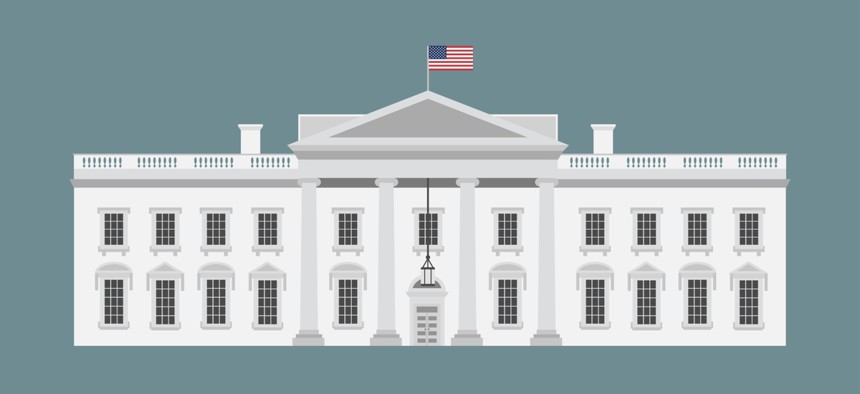Despite President’s Comments, Transition Efforts Required By Law Are Underway

Chris Bain/Shutterstock.com
The Trump administration so far has met all of its requirements to prepare for the transition to a second term or a new president.
Presidential transition efforts, as required by law, have been underway within the Trump administration for almost a year, despite President Trump’s recent non-committal to a peaceful changeover.
“We’re going to have to see what happens,” the president said during a briefing on Sept. 23 when asked if he could commit to a peaceful transition of power if he loses the election. Two days later he said he wants a “smooth, beautiful transition...but it's got to be an honest vote,” as he continues to claim that voting by mail is ripe for fraud. He also cast doubt during the debate on Tuesday night, saying there wasn’t a transition after he won in 2016 “because they came after me trying to do a coup.”
In addition, Trump’s campaign is building a post-election litigation team and the administration is rushing to get Judge Amy Coney Barrett confirmed to the Supreme Court, which could help Trump if the election results are not clear. This could mean Trump is “contemplating denying Biden...access to the executive branch” if he wins, said Jeff Hauser, executive director of The Revolving Door Project, an initiative of the Center for Economic and Policy Research, which is trying to get progressive groups to be more engaged in the transition process.
Despite the uncertainty over Trump’s intentions, the presidential transition, which is enshrined in various laws, began last November and, so far, the administration has met its statutory requirements, such as designating space to the Biden campaign, establishing a White House coordinating committee and council of agency transition directors and submitting reports to Congress six and three months ahead of the election. The first transition law was passed in 1963, but the process has evolved and grown lengthier over the years, especially after the 2000 election because the recount of Florida’s votes and Supreme Court case shortened the transition time, Ed Ingle, president of the consulting firm New Lantern partners who was the Cabinet coordination director for President George W. Bush’s transition in 2000, noted.
Martha Joynt Kumar, director of the White House Transition Project, a nonpartisan nonprofit group that provides informational resources for government officials, told Government Executive she believes the transition process is “working well” and “can see there is cooperation from the administration even if the president is sending out a separate message.” GSA’s Mary Gibert is the federal transition coordinator and has decades of experience working in the federal government.
Democratic presidential nominee Joe Biden’s transition team is also working to meet the planning requirements. The team includes high-profile figures, such as former Sen. Ted Kaufman, D-Del., who co-authored the 2015 Presidential Transitions Improvement Act, and Jeffrey Zients, President Obama’s top economic adviser and former acting OMB director, as CNN reported. It is largely working remotely.
“In our remote environment we are planning to build a diverse team of experts ready to serve the country on day one—ensuring a Biden administration can get started putting America on a path to recovery from the pandemic and the resulting economic downturn the moment Vice President Biden and Senator [Kamala] Harris are sworn in,” a Biden transition official told Government Executive.
The Biden transition team declined to comment on its work with the Office of Management and Budget, General Services Administration and the other federal agencies on the transition process.
Even “in a normal transition” campaign, officials typically don’t get the “green light” to talk with the press about their work with agencies, said Robert Shea, a principal at Grant Thornton Public Sector and former senior OMB official. “I especially can’t imagine the bunker mentality folks are in right now.”
Many government employees could engage with the opposing campaign “surreptitiously to avoid the perception they’re engaging with the enemy,” Shea said. “But I am 100% certain individuals from OMB and GSA are engaged with the Biden transition team, whether they’ve got permission to do so or not.”
OMB and GSA did not respond to requests for comment.
Congress is also planning for a peaceful transition. “The winner of the November 3rd election will be inaugurated on January 20th,” Senate Majority Leader Mitch McConnell, R-Ky., tweeted on September 24. “There will be an orderly transition just as there has been every four years since 1792.” Other Republicans made similar statements. Also, this week the Senate and House agreed to a non-binding resolution that affirms there will be a peaceful transition of power if Trump loses the election. It was unanimous in the Senate, but five Republicans voted against it in the House.






